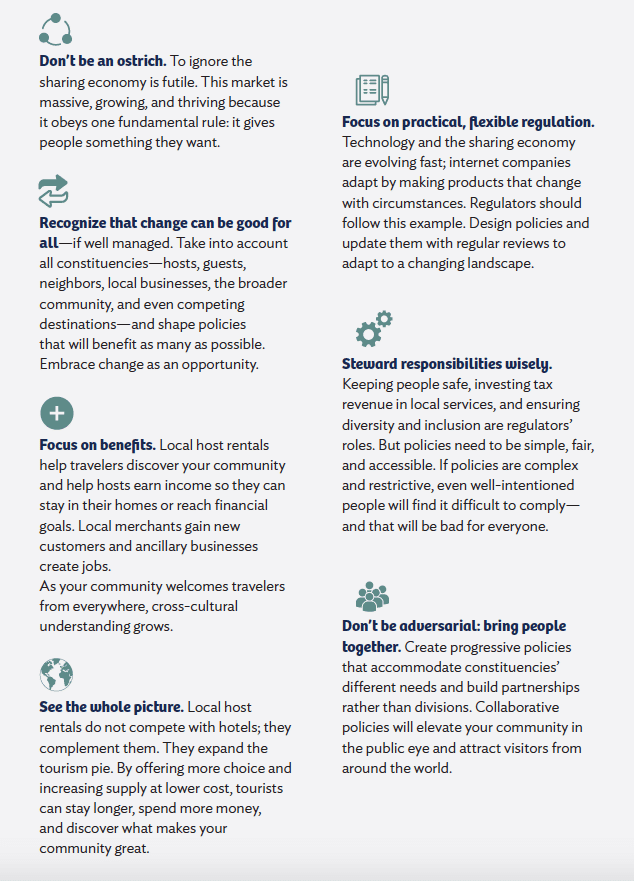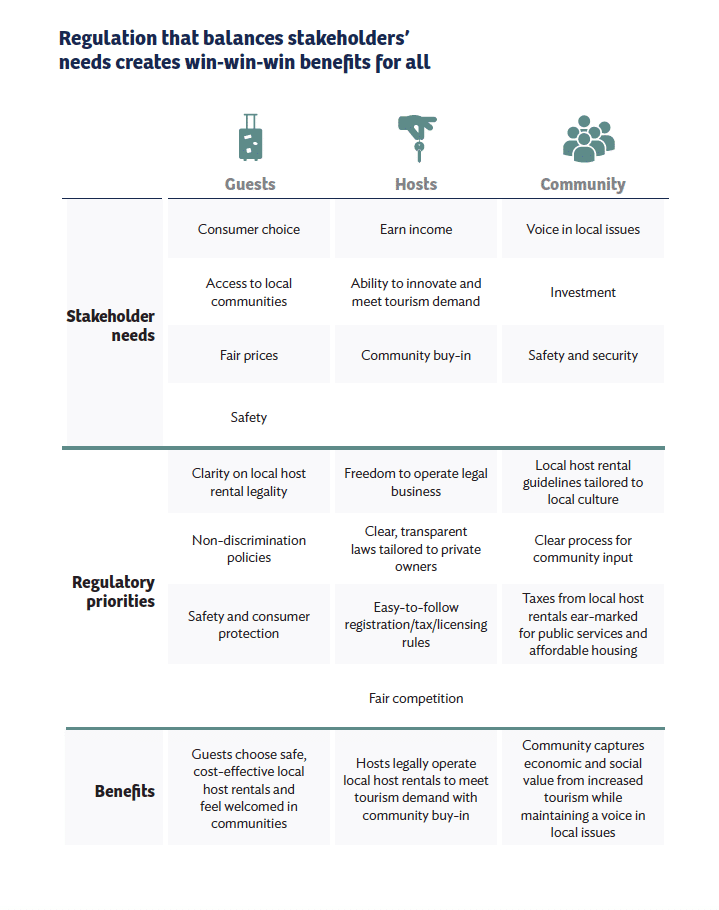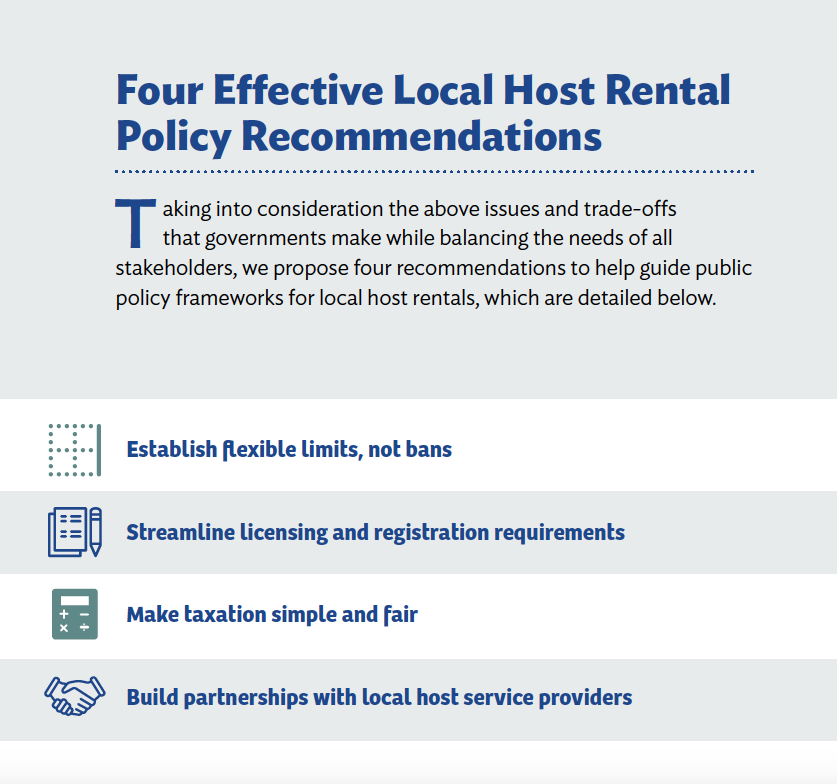What governmentsneedto know
What governmentsneedto know
The industry is so new, and growing and changing so fast, that it’s difficult for cities, provinces, and countries to stay on top of it. However, the most sensible regulatory approach embraces change rather than fights against it. Regulators have a difficult but essential role to play in coming up with a policy response that strikes a fine and fair balance between stakeholder needs (host, guests, communities, platforms, hoteliers) and optimizing the benefits this unique business segment has to bring.
Local host rentals bring outsized economic benefits
Local host rentals bring
outsized economic benefits
Worth of the global local host rental market
Regulators ought to recognize that local host rentals are increasingly important contributors to the local economy – whether by attracting guests to a country, increasing tourism spend, or generating trickle-down benefits f or local communities. Guests that stay in local host rentals tend to spend a disproportionate amount of their travel budget on the immediate neighborhood. I n addition, guests of local host rentals tend to stay longer (due to cheaper accommodations). All around the world – as you ’ ll see below – local host rentals are growing in clout and regulators must craft app ropriate regulatory responses to manage (but not limit) them.
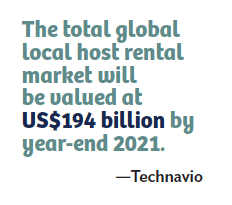
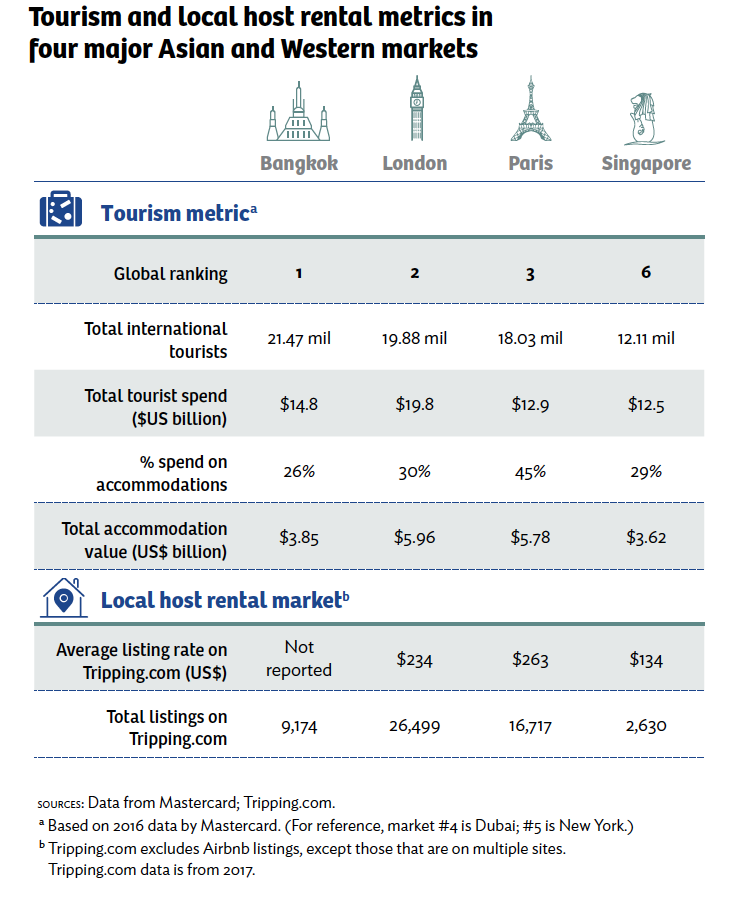
The local host rental ecosystem is a complex one with multiple stakeholders, each having diverging interests. The three main stakeholders – guests, hosts, and local communities – have distinct needs which can addressed with nuanced policy-making.
Stakeholder needs and regulatory priorities
After we have identified the respective interests of the various stakeholders, how should regulators go about crafting regulatory responses? What principles are there to guide the drafting of specific regulations? In this vein, we propose four recommendations that should under gird the drafting process
Four policy recommendations for regulators
Four policy recommendations
for regulators
Regulators play an incredibly important role in the local host rental ecosystem. They have the difficult job of managing negative externalities resulting from local host rentals while allowing them enough wiggle room to express their economic and social benefits. This is a difficult juggling exercise which requires clear thinking, timely feedback, and a risk-tolerant attitude.
Key Lessons for Regulators
Key Lessons for Regulators
